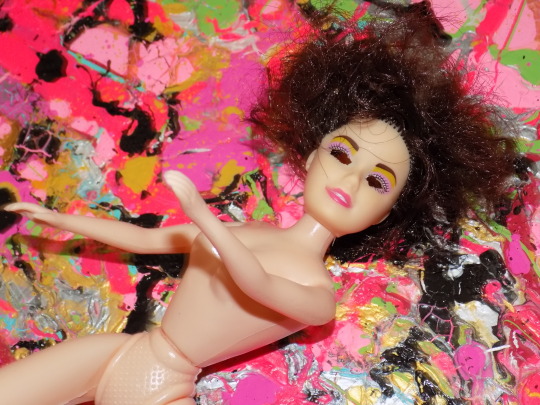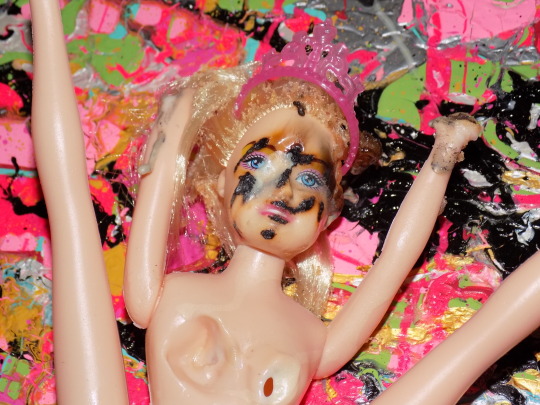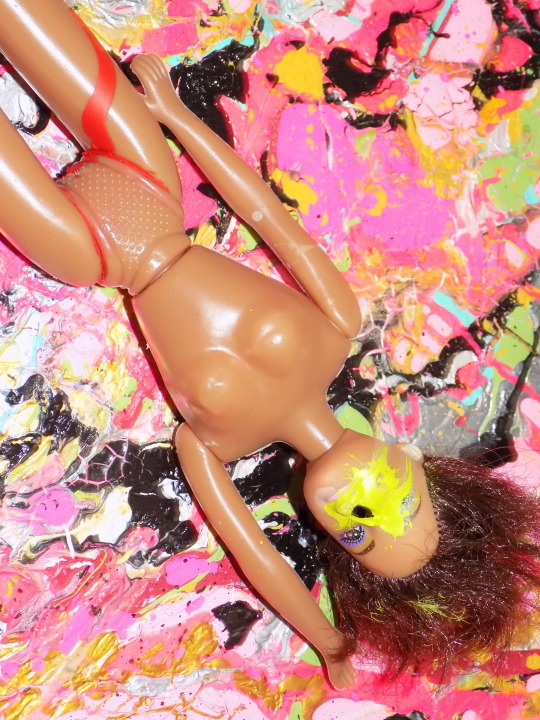Audio
That raw glow rips a hole
in the blue of the sky.
I am inside.
The west calls me
to surrender,
but I am right here,
where I’ve nearly always been,
dreaming of somewhere else.
Walking these broken streets,
in my sleep,
I read the shit graffiti,
wander the back lots,
half expecting to get killed or caught.
The river spills over the dam.
Derelict factories crumble into it,
washing away our proud past.
I am a piece of this story,
but somehow,
I feel like a stranger,
slipping between buildings,
kicking rocks along the tracks.
My family has their stake in this story,
but somehow,
I stand outside of that.
They may say it was my choice,
but really, what choice did I have?
© 2016 Norman Victor Chaplin
Some Rights Reserved
8 notes
·
View notes
Audio
I made myself blank.
I stood perfectly still.
My words, precious and few,
I kept to myself.
I took their shit.
I let it slide
over both shoulders,
falling into my pockets.
The weight made me strong.
The wait made me strong.
I did my time,
like we all do our time.
At night, in bed alone,
my fingers walked over my naked skin,
digging their nails into my
every perceptible imperfection.
Tearing the surface of every bump
left a scab, now a scar.
“You can’t leave anything alone.
You can’t let anything go.”
All I could do was turn it over.
In my mind, I could only surrender,
but there is a part of me
that cannot resist a fight.
There is a part of me
that cannot stand idly by.
There is a part of me
that cannot live a lie.
That part of me
is the reason I survived.
© 2016 Norman Victor Chaplin
Some Rights Reserved
#homecoming queef#homecomingqueef#poetry#poem#spoken word#spokenword#spoken poetry#transgender#trans#genderqueer#bullying
3 notes
·
View notes
Audio
That feeling,
in early morning,
when everything is still,
and I am so tired
nothing seems real;
I am walking
with rocks stuck between
my shoes and the soles
of my bare feet.
The sky is light,
but the sun is nowhere
to be seen.
I am soaking wet;
my bare legs
covered in dirt.
The nights I have survived
might make me a heroine
in some eyes,
but all I want is sleep.
All I want is to dream
without crying.
The nights I have survived
leave me grateful
to be alive,
but all I want is sleep.
All I want is to dream
without screaming.
And that man
is at my door again,
his limp leg
scraping the ground.
And that man
is trying to get in.
I am locking
and relocking the doors.
He is rattling the knob,
calling me a whore.
I am hiding in the bathroom,
putting on my makeup,
when he breaks it down.
That’s when I wake up.
© 2016 Norman Victor Chaplin
Some Rights Reserved
#homecoming queef#homecomingqueef#poetry#poem#spoken word#spokenword#transgender#ptsd#dream poetry#dream poem#genderqueer
1 note
·
View note
Photo

“Are you there, God? It’s Me, Homecoming Queef.”
0 notes
Photo

0 notes
Quote
Being an artist means: not numbering and counting, but ripening like a tree, which doesn’t force its sap, and stands confidently in the storms of spring, not afraid that afterward summer may not come.
Rilke, Letters to a Young Poet, (trans. by Stephen Mitchell)
232 notes
·
View notes
Link
"In the first chapbook from this confrontational multimedia series, genderqueer artist/writer Norman Victor Chaplin collects 18 poems, employing spare language and deft metaphor in the exploration of deeply personal subject matter, ranging from childhood abuse and radical self acceptance, to self harm and suicidality."
#homecomingqueef#homecoming queef#norman victor chaplin#norman chaplin#ebook#kindle ebooks#kindle edition#poetry chapbook#national poetry month#poetry#poem#chapbook#chap book#genderqueer#non-binary#nonbinary#transgender#transgender poetry#feminist poetry#transfeminism#transfeminist poetry#queer poetry#genderqueer poetry
2 notes
·
View notes
Text
Homecoming Queef #1 by Norman Victor Chaplin
"In the first chapbook from this confrontational multimedia series, genderqueer artist/writer Norman Victor Chaplin collects 18 poems, employing spare language and deft metaphor in the exploration of deeply personal subject matter, ranging from childhood abuse and radical self acceptance, to self harm and suicidality."
#homecoming queef#homecomingqueef#norman victor chaplin#poetry#poem#chapbook#scribd#genderqueer#transgender#nonbinary#non-binary#norman chaplin#feminist poetry#transfeminism#personal poetry#queer
1 note
·
View note
Quote
The Sexy Tragic Muse fetishizes women’s pain by portraying debilitating mental health disorders filtered dreamily through the male gaze. The trope glamourizes addiction and illnesses like depression, bipolar disorder, and schizophrenia – diseases that are distinctly unglamorous for those of us who live with them. The Sexy Tragic Muse is vulnerable, and her vulnerability is sexualized. Her inability to properly care for herself or make decisions on her own behalf is presented as being part of her appeal.
And perhaps this is the most frustrating thing about the Sexy Tragic Muse – the fact that this character type seems to be a neat way of removing a woman’s agency without the film or book or song coming across as overtly misogynistic. She occupies the intersection of ableism and sexism, and her mental illness is portrayed in a way that makes it commendable, even necessary, for others to care for her. We feel gratitude to the men that step up and save her, because she obviously cannot save herself. We feel empathy for the men that break up with her, because we see that she is difficult and volatile. We never get to see things from her perspective; often it is implied that this would be impossible, because her perspective is too confused and fractured.
Anne Thériault, “Mental Illness & The Male Gaze”
14K notes
·
View notes
Photo

1 note
·
View note
Photo

from That’s The Way Boys Are, Homecoming Queef, 2016
In this photographic series, mutilated fashion dolls represent the lives of countless women, altered or destroyed by male violence, as well as the larger than life construct of the feminine ideal. This feminine symbol, existing both in compliance with and in defiance of patriarchal authority, represents both sexual objectification and female independence. The conflict inherent of this dichotomy being relevant to the postmodern experience of womanhood, the destruction of this dual symbol represents the imposition of masculine insecurities and stereotypical destructive male behaviors, both juvenile and adult. Whether viewed as the impulsive act of a mischievous boy, or as a deliberate violation by men of women in the grips of a brutishly imbalanced culture, intent on glorifying and sexualizing violence, the defacement of these objects inspires both horror and glee; humor and sadness.
0 notes
Photo

from That’s The Way Boys Are, Homecoming Queef, 2016
In this photographic series, mutilated fashion dolls represent the lives of countless women, altered or destroyed by male violence, as well as the larger than life construct of the feminine ideal. This feminine symbol, existing both in compliance with and in defiance of patriarchal authority, represents both sexual objectification and female independence. The conflict inherent of this dichotomy being relevant to the postmodern experience of womanhood, the destruction of this dual symbol represents the imposition of masculine insecurities and stereotypical destructive male behaviors, both juvenile and adult. Whether viewed as the impulsive act of a mischievous boy, or as a deliberate violation by men of women in the grips of a brutishly imbalanced culture, intent on glorifying and sexualizing violence, the defacement of these objects inspires both horror and glee; humor and sadness.
2 notes
·
View notes
Photo

from That’s The Way Boys Are, Homecoming Queef, 2016
In this photographic series, mutilated fashion dolls represent the lives of countless women, altered or destroyed by male violence, as well as the larger than life construct of the feminine ideal. This feminine symbol, existing both in compliance with and in defiance of patriarchal authority, represents both sexual objectification and female independence. The conflict inherent of this dichotomy being relevant to the postmodern experience of womanhood, the destruction of this dual symbol represents the imposition of masculine insecurities and stereotypical destructive male behaviors, both juvenile and adult. Whether viewed as the impulsive act of a mischievous boy, or as a deliberate violation by men of women in the grips of a brutishly imbalanced culture, intent on glorifying and sexualizing violence, the defacement of these objects inspires both horror and glee; humor and sadness.
1 note
·
View note
Photo

from That’s The Way Boys Are, Homecoming Queef, 2016
In this photographic series, mutilated fashion dolls represent the lives of countless women, altered or destroyed by male violence, as well as the larger than life construct of the feminine ideal. This feminine symbol, existing both in compliance with and in defiance of patriarchal authority, represents both sexual objectification and female independence. The conflict inherent of this dichotomy being relevant to the postmodern experience of womanhood, the destruction of this dual symbol represents the imposition of masculine insecurities and stereotypical destructive male behaviors, both juvenile and adult. Whether viewed as the impulsive act of a mischievous boy, or as a deliberate violation by men of women in the grips of a brutishly imbalanced culture, intent on glorifying and sexualizing violence, the defacement of these objects inspires both horror and glee; humor and sadness.
1 note
·
View note
Text
Scab to Scar
I made myself blank.
I stood perfectly still.
My words, precious and few,
I kept to myself.
I took their shit.
I let it slide
over both shoulders,
falling into my pockets.
The weight made me strong.
The wait made me strong.
I did my time,
like we all do our time.
At night, in bed alone,
my fingers walked over my naked skin,
digging their nails into my
every perceptible imperfection.
Tearing the surface of every bump
left a scab, now a scar.
“You can’t leave anything alone.
You can’t let anything go.”
All I could do was turn it over.
In my mind, I could only surrender,
but there is a part of me
that cannot resist a fight.
There is a part of me
that cannot stand idly by.
There is a part of me
that cannot live a lie.
That part of me
is the reason I survived.
© 2016 Norman Victor Chaplin
All Rights Reserved
#homecoming queef#homecomingqueef#norman chaplin#queer#genderqueer#bullying#poetry#poem#risingphoenixpress#national poetry month
5 notes
·
View notes
Text
Orange
That raw glow rips a hole
in the blue of the sky.
I am inside.
The west calls me
to surrender,
but I am right here,
where I’ve nearly always been,
dreaming of somewhere else.
Walking these broken streets,
in my sleep,
I read the shit graffiti,
wander the back lots,
half expecting to get killed or caught.
The river spills over the dam.
Derelict factories crumble into it,
washing away our proud past.
I am a piece of this story,
but somehow,
I feel like a stranger,
slipping between buildings,
kicking rocks along the tracks.
My family has their stake in this story,
but somehow,
I stand outside of that.
They may say it was my choice,
but really, what choice did I have?
© 2016 Norman Victor Chaplin
All Rights Reserved
#homecoming queef#homecomingqueef#norman chaplin#national poetry month#poem#poetry#risingphoenixpress#queer#genderqueer#americana
4 notes
·
View notes